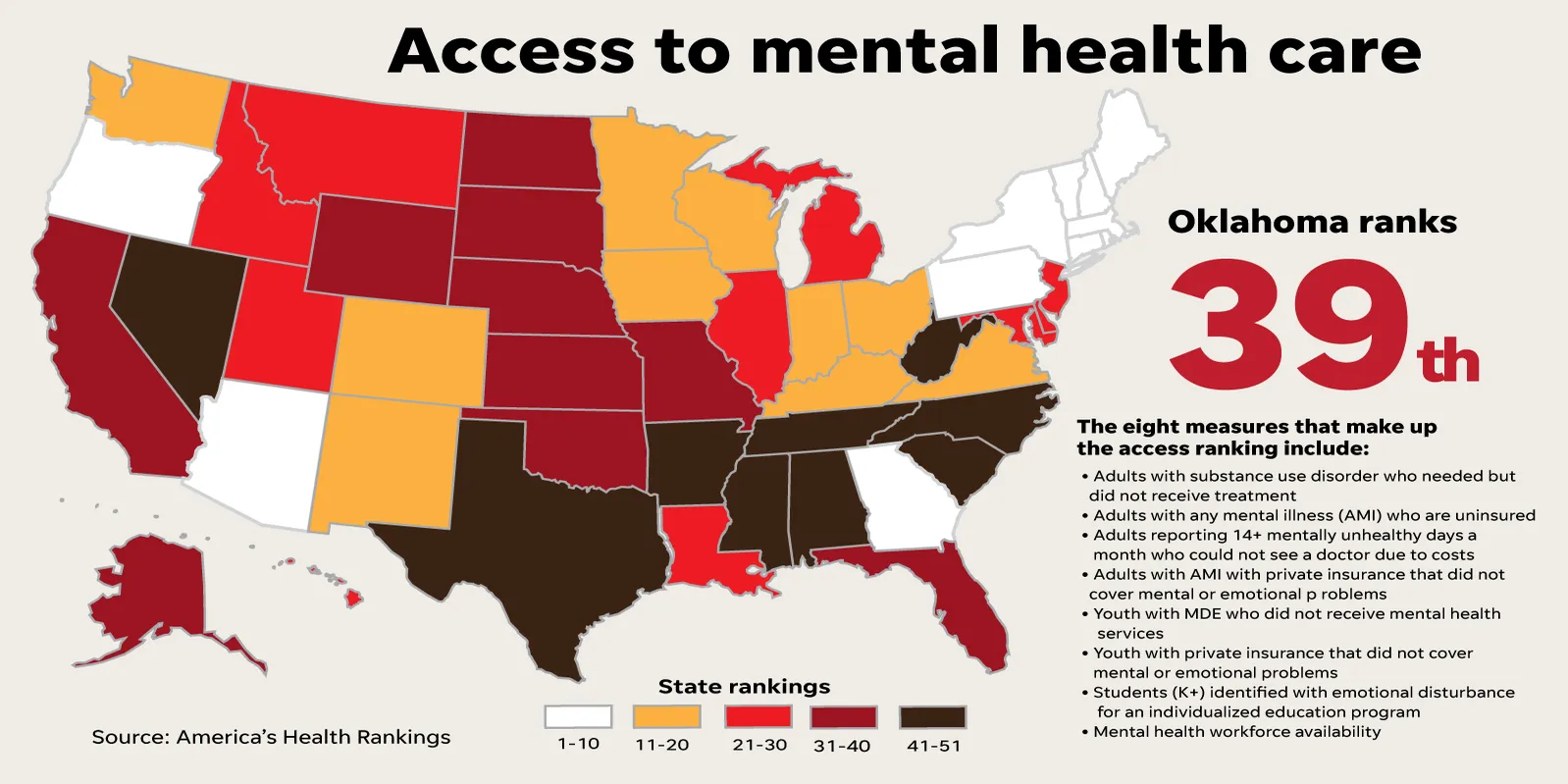
Mental health belongs at the center of Oklahoma justice reform efforts
How did your country report this? Share your view in the comments.
Diverging Reports Breakdown
Mental health belongs at the center of Oklahoma justice reform efforts | Opinion
Vicki Behenna is the district attorney for Oklahoma County. She says untreated mental illness fuels the revolving door of arrest, incarceration, release, rearrest, incarceration and release. Treating mental health helps lower crime rates and make communities safer, she says. She previously served as executive director of the Innocence Project and as an assistant U.S. attorney, where she helped prosecute Timothy McVeigh after the Oklahoma City bombing. The crime rate in Oklahoma City has significantly declined over the last six years, she writes.
Vicki Behenna
Guest columnist
I have worked in the criminal justice system my entire career. As a federal prosecutor and now as Oklahoma County district attorney, I’ve seen firsthand how untreated mental illness fuels the revolving door of arrest, incarceration, release, rearrest, incarceration and release. I’ve spent decades navigating the complexities of our justice system, and I can confidently say that there is a direct correlation between the investment in intervention and treatment programs and crime in our community.
Too often, our jails act as mental health holding facilities, with some people landing behind bars not because they’re dangerous, but because they’re mentally ill and don’t have access to a continuum of care. This approach is neither just nor effective. It strains our legal system, burdens law enforcement and taxpayers, and fails to address the root causes of why a mentally ill person continues to enter the criminal justice system.
In Oklahoma County, we’re witnessing the consequences of this misalignment. The Oklahoma County jail has long grappled with overcrowding and inadequate conditions. Many inmates suffer from mental health issues that go untreated for years, exacerbating their conditions and increasing the likelihood of reoffending upon release.
Treating mental health helps lower crime rates
Programs like ReMerge and DREAMS courts (Mental Health Court) offer a more compassionate and sensible alternative. By diverting individuals with mental health and substance use disorders away from incarceration and into treatment, these initiatives not only help keep people from cycling back through the system but can also restore families and the dignity of those suffering with mental illness.
Need a break? Play the USA TODAY Daily Crossword Puzzle.
The result is a lower crime rate and safer communities. In Oklahoma City alone, the crime rate has significantly declined over the last six years.
Providing community-based treatment options and intervention programs enhances public safety and ensures that our justice system upholds the dignity of every individual.
As someone who has prosecuted high-profile cases, I understand the importance of a justice system that is both fair and effective. By placing mental health care at the center of justice reform, we can create a system that truly serves and protects our community.
To break the cycle, we must prioritize mental health care as a cornerstone of justice reform.
Vicki Behenna is the district attorney for Oklahoma County. She previously served as executive director of the Innocence Project and as an assistant U.S. attorney, where she helped prosecute Timothy McVeigh after the Oklahoma City bombing.
